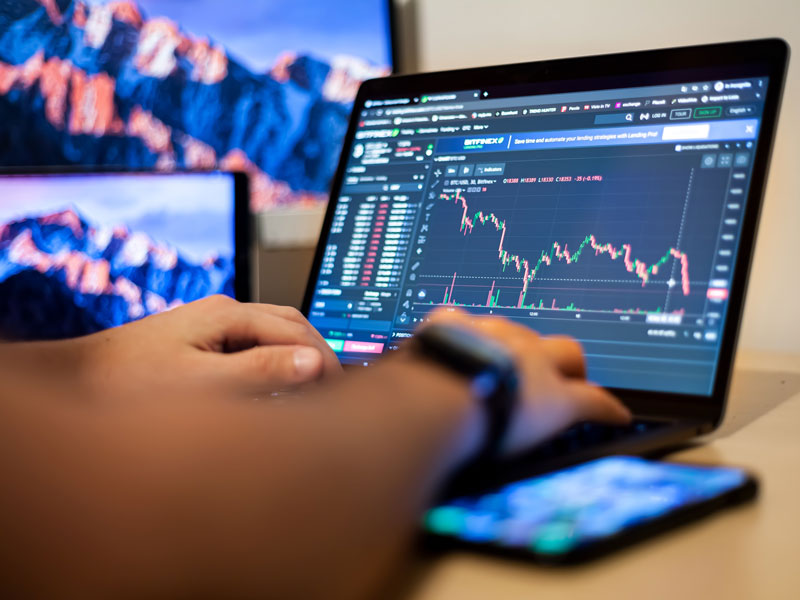- No Products In The Cart
- start shopping
The Role of Forex Currency Trading Brokers in Modern Investment

The Role of Forex Currency Trading Brokers in Modern Investment
Forex trading, short for foreign exchange trading, is one of the largest financial markets in the world, and it operates 24 hours a day, five days a week. This dynamic environment offers opportunities for individual and institutional investors to trade national currencies against one another. A critical component of the forex trading ecosystem is the trading broker. A forex currency trading broker is a platform or entity that facilitates the buying and selling of foreign currencies. You can find reputable brokers like forex currency trading broker protradinguae.com that cater to diverse trader needs.
Understanding Forex Brokers
Forex brokers act as intermediaries between individual traders and the forex market. They provide investors with the necessary tools and platforms to engage in trading. Brokers can vary significantly in terms of services offered, cost structures, and trading platforms. It is crucial for traders to understand the types of brokers available to make an informed choice based on their trading style and objectives.
Types of Forex Brokers
There are primarily two types of forex brokers: market makers and STP (Straight Through Processing) brokers.
- Market Makers: These brokers create a market for their traders by offering buy and sell prices. They often set their spreads and may expose traders to a certain level of risk. Market makers can provide liquidity and are generally ideal for novice traders who want to execute trades quickly.
- STP Brokers: STP brokers are more like intermediaries that connect traders directly to the interbank market. They aggregate quotes from various liquidity providers and execute trades based on these market prices. This can result in tighter spreads but may involve additional fees.
Benefits of Using a Forex Broker
Using a forex broker comes with several advantages:
- Access to Various Trading Instruments: Most brokers provide access to a wide range of currency pairs, commodities, and indices. This variety allows traders to diversify their portfolios.
- Leverage Opportunities: Forex brokers offer leverage, allowing traders to control larger positions with a smaller amount of capital. This can amplify both potential gains and losses.
- Trading Platforms: Brokers typically offer proprietary platforms or third-party applications that provide advanced charting tools, technical analysis, and automated trading options.
- Education and Research: Many brokers invest in trader education, offering webinars, tutorials, and market analysis that help traders make informed decisions.
- Customer Support: Reputable brokers provide customer support to assist traders with any issues they might encounter during their trading journey.
Choosing the Right Forex Broker

Selecting the right forex broker is paramount to trading success. Here are several factors to consider:
- Regulation: Ensure the broker is regulated by a reputable authority. Regulatory bodies such as the FCA (UK), ASIC (Australia), and the NFA (USA) enforce standards that protect traders.
- Trading Costs: Compare spreads, commissions, and fees to understand the total costs associated with trading. A broker may offer low spreads but charge high commissions.
- Trading Platform: Evaluate the trading platform for user-friendliness, reliability, and the tools offered. A good platform can significantly impact your trading experience.
- Customer Reviews: Research broker reputation by reading customer reviews and testimonials. This can provide insights into the quality of service, reliability, and trading conditions.
- Assets Offered: Ensure the broker offers a wide range of financial instruments that meet your trading preferences. Some traders may prefer focusing solely on forex, while others may want to trade commodities and indices as well.
Common Forex Trading Strategies
Forex trading strategies can vary widely, depending on individual risk tolerance, time commitment, and trading style. Here are a few popular approaches:
- Scalping: This strategy involves making numerous trades throughout the day to capitalize on small price movements. Scalpers typically hold trades for only a few minutes.
- Day Trading: Day traders open and close trades within the same day, avoiding overnight risk. This strategy requires a solid understanding of market conditions and price movements.
- Swing Trading: Swing traders look to capture price swings over a couple of days to weeks. This strategy involves less stress than day trading and typically requires less time commitment.
- Position Trading: This long-term strategy involves holding trades for several weeks, months, or even years. Position traders focus on fundamental analysis and broader market trends.
Risk Management in Forex Trading
Regardless of trading strategies, risk management is crucial in forex trading. Here are some fundamental principles:
- Use Stop-Loss Orders: Implementing stop-loss orders can help limit potential losses by automatically closing a position at a predetermined price.
- Position Sizing: Determine the size of each trade based on your overall account balance and risk tolerance. This practice helps manage risk effectively.
- Diversification: Avoid putting all your capital into one trade or trading one currency pair. Diversifying trading positions can mitigate risk.
- Stay Informed: Keeping up with economic news, geopolitical events, and market trends can help traders anticipate price movements and make informed decisions.
The Future of Forex Trading
As digital technologies evolve, the future of forex trading will likely see advancements such as AI-driven trading algorithms, enhanced risk management systems, and increased integration with artificial intelligence for market analysis. Additionally, the emergence of cryptocurrency trading has led to innovative trading instruments within the forex market. Traders must adapt quickly to these changes, focusing on continuous education and strategic adaptation.
Conclusion
Forex trading can be a rewarding venture, but it comes with its own set of challenges and risks. The importance of selecting a reputable forex currency trading broker cannot be overstated. Doing thorough research, understanding the types of brokers, and utilizing risk management strategies can empower traders to navigate this volatile market successfully. Remember that trading requires discipline, a well-thought-out strategy, and the ability to learn from both successes and mistakes.

